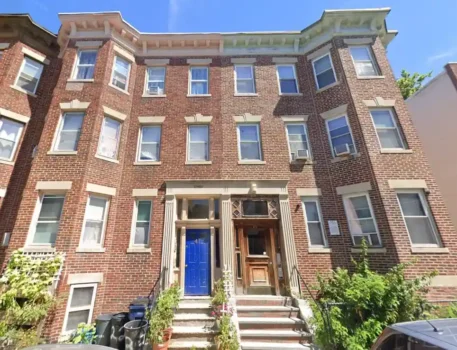Ideally, health professionals would be able to identify which AUD treatment is most effective for each person. NIAAA and other organizations are conducting research to identify genes and other factors that can predict how well someone will respond to a particular treatment. These advances could optimize how treatment decisions are made in the future. It is important to remember that not all people will respond to medications, but for a subset of individuals, they can be an important tool in overcoming alcohol dependence. Research shows that about one-third of people who are treated for alcohol problems have no further symptoms 1 year later. Many others substantially reduce their drinking and report fewer alcohol-related problems.
Recognizing unhealthy drug use in family members
The experience of withdrawing from alcohol can be uncomfortable and difficult. Some people may relapse, or drink alcohol again, to relieve the symptoms. When you engage in chronic heavy drinking, your brain adapts to the presence of alcohol in your blood to maintain homeostasis (a balanced state). As your brain grows accustomed to higher blood alcohol concentration levels, it starts to rely on alcohol to function properly. These symptoms usually peak in intensity on the second or third day of being sober and tend to improve significantly between 2 to 7 days without alcohol use unless more severe symptoms develop. By Sarah Bence, OTR/LBence is an occupational therapist with a range of work experience in mental healthcare settings.
Preventing a relapse
This may include medications, therapy, or both and can be offered in a variety of settings, both inpatient, outpatient, or a hybrid model. The main goal of treatment is to minimize your symptoms and prevent more severe ones like seizures or delirium, which could be fatal in some cases. If your symptoms become more severe, it’s essential to reach out to your treatment team and seek professional help Cure for Alcohol Withdrawal Symptoms right away. If your symptoms are mild (or perhaps even moderate), your doctor may suggest that you reach out to a friend or family member to help you monitor your symptoms at home. The likelihood of developing alcohol withdrawal increases with the amount and frequency of your alcohol intake. In some cases, AWS can be a medical emergency and — if complications arise — potentially life threatening.
- A heavy drinking binge may even cause a life-threatening coma or death.
- Gradual substance tapering is a term used for the process of slowly decreasing the amount of a substance over a specific period of time.
- A relative or friend must stay with you to monitor your condition.
Medication for Alcohol Withdrawal
- Symptoms typically peak around the 72-hour mark and start to reduce in severity after approximately 5 to 7 days.
- For delirium tremens, treatment in an intensive care unit (ICU) is often required.
- Treatment varies depending on the severity of withdrawal symptoms.
- It’s a dangerous but treatable condition that starts about 2-3 days after someone who’s dependent on alcohol suddenly stops drinking.
- Dietary guidelines recommend that if you drink, men limit daily drinking to two drinks or less per day and women limit their drinking to one drink or less per day.
- They’re most often used for treating anxiety and related mental health conditions, as well as brain-related conditions like seizures.
It produces euphoria and other effects at low blood concentrations. It’s also a central nervous system depressant, and your body may become more reliant on ethanol the longer it’s exposed to it. This is sometimes referred to as protracted or post-acute alcohol withdrawal (PAW), though it’s not recognized in DSM-5.
Delirium tremens: 48–72 hours

If you have a longer history of substance use, the detox process can potentially be very harmful if you detox too quickly or the withdrawal symptoms become too severe. Alcoholics Anonymous (AA) and other 12-step programs provide peer support for people quitting or cutting back on their drinking. Combined with treatment led by health professionals, mutual-support groups can offer a valuable added layer of support. Three medications are currently approved in the United States to help people stop or reduce their drinking and prevent relapse. They are prescribed by a primary care physician or other health professional and may be used alone or in combination with counseling. Support groups and peer support play a vital role in the recovery process for individuals dealing with alcohol addiction.
What Causes Alcohol Withdrawal Symptoms?

Being in a hospital or detox facility ensures that professionals are always around. They can help you be as comfortable and safe as possible during the process. The third stage of alcohol withdrawal symptoms usually lasts for 2 to 3 days. Alcohol detox under medical supervision is the safest way to abstain from alcohol.
Let’s address some of the most frequently asked questions about alcohol withdrawal, providing insight into different aspects such as medication, home remedies, dietary considerations and more. Your healthcare provider will schedule follow-up visits after prescribing benzodiazepines. In some areas, providers can’t prescribe these medications without first seeing you for a follow-up visit.
Delirium Tremens Causes and Risk Factors
Individuals may also want to consider maintenance medications, a support group, or enlisting the support of friends. In some cases, symptoms may progress to severe withdrawal with seizures and delirium tremens. It’s much better to focus on something you enjoy than to focus on the discomfort of your withdrawal symptoms.
- Those with severe AWS experience severe anxiety and moderate to severe tremor, but they do not have confusion, hallucinations, or seizures.
- Although rare, the following conditions related to alcohol withdrawal can be life-threatening.
- Attempts to stop drug use may cause intense cravings and make you feel physically ill.
- As more medications become available, people may be able to try multiple medications to find which they respond to best.
- The main goal of treatment is to minimize your symptoms and prevent more severe ones like seizures or delirium, which could be fatal in some cases.

No responses yet